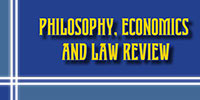Michael RAHNFELD
Ph.D. Philosophy associate professor, Germany
michaelrahnfeld@protonmail.com
UDC 141
DOI 10.31733/2786-491X-2022-1-54-75
Keywords: artificial neural networks, Whitehead, connectionism
Abstract. The article discusses the problems of development of artificial neural networks (ANN) in the context of the methodology of AN Whitehead. The idea that nature itself controls the learning process boils down to pantheism or atheism from a theological point of view; because outside nature no other control mechanism is involved. On the other hand, assuming the existence of an expert, there is an approach different from ANN. It makes sense to reduce the notion of the expert not only to his systematic functions, but also to include in him additional human qualities that, if desired, could bring him closer to a personal God.
The article is devoted to the consideration of software possibilities of connectionism for thinking process. The author argues that there are clear differences between the concept of Whitehead and ANN, because in the case of ANN is only about the most accurate and effective study of a goal, whatever it may be, while Whitehead deals with the aesthetic intensification of global contrasts. Gradual regulation of neuronal weights is only an expression of learning progress without any additional aspects. For Whitehead, overall weight distribution as an expression of aesthetic harmony would be crucial for the quality of communication, for example, based on the degree of entropy, but this does not play a role in the quality of ANN, measured solely by its ability to learn. In addition, self-determination or self-realization is irrelevant to neurons as opposed to real entities. But this is also a fundamental problem for Whitehead himself, as there is no meaningful application of these terms in the field of elementary processes.
It is emphasized that the main feature of Whitehead’s ontology is that the world is a disjunctively diverse set that enters into a complex unity. The same applies to the flow of neuronal data: in a new neuron, data is inherited, processed and fed into subsequent neural processes, and so on. In a broader sense, creativity is inevitable in ANN processes, because if the speed of learning is too high, the convergence of the error function is no longer guaranteed; if the speed is too low, the number of required training runs can be very large. When adjusting the weights, it can happen that the optimization is stuck in the local minimum
The article discusses the problems of development of artificial neural networks (ANN) in the context of the methodology of AN Whitehead. The idea that nature itself controls the learning process boils down to pantheism or atheism from a theological point of view; because outside nature no other control mechanism is involved. On the other hand, assuming the existence of an expert, there is an approach different from ANN. It makes sense to reduce the notion of the expert not only to his systematic functions, but also to include in him additional human qualities that, if desired, could bring him closer to a personal God.
The article is devoted to the consideration of software possibilities of connectionism for thinking process. The author argues that there are clear differences between the concept of Whitehead and ANN, because in the case of ANN is only about the most accurate and effective study of a goal, whatever it may be, while Whitehead deals with the aesthetic intensification of global contrasts. Gradual regulation of neuronal weights is only an expression of learning progress without any additional aspects. For Whitehead, overall weight distribution as an expression of aesthetic harmony would be crucial for the quality of communication, for example, based on the degree of entropy, but this does not play a role in the quality of ANN, measured solely by its ability to learn. In addition, self-determination or self-realization is irrelevant to neurons as opposed to real entities. But this is also a fundamental problem for Whitehead himself, as there is no meaningful application of these terms in the field of elementary processes.
It is emphasized that the main feature of Whitehead’s ontology is that the world is a disjunctively diverse set that enters into a complex unity. The same applies to the flow of neuronal data: in a new neuron, data is inherited, processed and fed into subsequent neural processes, and so on. In a broader sense, creativity is inevitable in ANN processes, because if the speed of learning is too high, the convergence of the error function is no longer guaranteed; if the speed is too low, the number of required training runs can be very large. When adjusting the weights, it can happen that the optimization is stuck in the local minimum.
References
Garson, J. (2008). Connectionism. In Edward N. Zalta (ed.). Stanford Encyclopedia of Philosophy.
Halapsis, A. (2016). Miracles and the Perfection of Being: The Theological Roots of Scientific Concepts. Anthropological Measurements of Philosophical Research, 9, 70-77. doi:10.15802/ampr2016/72235.
Halapsis, A. (2016). Ultima ratio deorum. Anthropological Measurements of Philosophical Research, 10, 100-106, doi:10.15802/ampr.v0i10.87313.
MacLane, S. (1998). Categories for the Working Mathematician. Springer.
Palmer, H. & Anders, K. (1991). Introduction to the theory of neural computation. Addison-Wesley.
Patterson, D. (1996). Artificial Neural Networks – Theory and Applications. Prentice Hall.
Rahnfeld, M. (2019). Cellular Automata. In Jakub Dziadkowiec & Lukasz Lamz (ed.). Science and Mind in Contemporary Process Thought.
Waskan, J. (2008). Connectionism. In J. Fieser & B. Dowden (ed.). Internet Encyclopedia of Philosophy.
Whitehead, A. N. (2007). An Enquiry Concerning the Principles of Natural Knowledge. New York: Cosimo, Paperback Edition.
Whitehead, A. N. (1962). The Function of Reason. Beacon Press: Third Printing Edition.
Whitehead, A. N. (1985). Process and Reality. New York: The Free Press. Paperback Edition.
Whitehead, A. N. (1967). Science and Modern World. New York: The Free Press, Paperback Edition.
